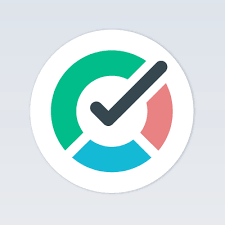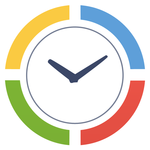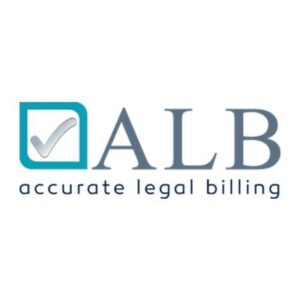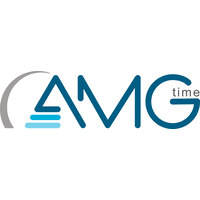What Is Time Tracking Software?
Time tracking software is a computer tool that employers and managers use to record the work done by employees for payroll, billing, or operations. In other words, it is a tool used to show the time spent on given tasks, which helps automate the invoice or payrolls.
Generally, it is time management software that can help you become more efficient, organized, and have more tasks done. Simply put, it is a tool that will undoubtedly help save precious time and money.
Introduction To Time Tracking Software
Are you aware that around 0.33% of employees waste up to 2 hours per day at the workplace? On average, this equates to 10 hours a week. This figure alone is astonishing, especially to the employers. As an entrepreneur, you may consider changing your way of doing business to help avoid such cases. Thanks to time tracking software, businesses can boost effectiveness and increase productivity.
Basically, tracking time is one of the vital activities done in many firms. Its role extends from invoicing to the right billing, giving business owners and managers useful data. Tracking time also helps reveal the performance trend. It shows overall employee productivity and assists in planning the work better in the future.
However, tracking time is not easy. You need the right tool to accomplish this. So what is the best tool? Read on to find out!
Basic Functions And Features You must Know
Someone said time is money, and no doubt they were right. Why? Because today, businesses have begun paying their workers based on the billable hours. How is this even possible? Thanks to the time tracking tools tailored to help businesses bill hours for their freelancers or employees.
Time tracking software has various uses. It facilitates:
1. Billing
Time tracking software keeps an accurate record of all billable hours. Clients can thus be invoiced transparently and accurately. In case there is data loss from your end as a user, the backed up data on the web ensures your clients get the same accurate and consistent invoices.
2. Productivity
With time tracking software, you can easily see those activities that are distracting you. You can also identify which tasks take more to complete. You can then acclimatize to optimize your utilization of these hours. This software helps in productivity too when working for an hourly wage.
3. Projecting
Time tracking software will show you how much time you're spending on a particular task. This is useful in planning for such activities in the future, or better still if the nature of the work is repetitive. Either way, you can make accurate timelines you can follow through to see if you're on track.
4. Time-Saving
Time tracking software replaces the paper and Excel timesheets that are tedious to prepare and update. It also eliminates the time you would have used to compile everything into a meaningful report. This way, you can focus on other productive activities without worry.
5. Project Management
Time tracking software can make predictions on the time and cost of a project quite accurately. This enables you to manage costs effectively and have the right amount of time reserved for the project.
6. Accounting For Invisible Tasks
Without time tracking software, honestly, it is quite hard to determine how much of your time goes into invisible tasks. Tasks such as phone calls, travel within the premises, communication about projects, and internal meetings can elusively take up a huge chunk of your time. Time tracking software allows you to factor these invisible tasks into your project estimations.
Which Businesses Should Use Such Software?
Time tracking software plays an integral part in boosting business productivity. Some areas that should consider using these tools are government organizations, large enterprises, small businesses, nonprofit organizations, freelancers, and teachers, among others.
That said, considering using time tracking tools will guarantee no squandering or time-wasting. It will help monitor the progress of the work and ensure that the money paid is worth the time. For instance, if companies implement the use of these tools in their offices, it will help monitor the workers' activities and ensure that all their office work is structured and organized well.
Unlike manual checking, the likes of time tracking tools automatically and electronically record what the workers are doing.
What Are The Benefits Of Using Time Tracking Tools?
Arguably, time is one of the most precious resources. Indeed in every business, tracking time is a must to achieve a reasonable metric, including the revenue, expenses, productivity, etc. The reason for this is that tracking something helps objectively value it.
Measuring something also helps comprehend the aspects hindering the performance of that specific metric. Understanding such aspects assists you in realizing your mistakes and changing your approach.
Thus, the initial benefit of all time tracking software is the potential of getting goal metrics, which can be worked on to optimize and improve the processes in your business. Let's have a look at this in close detail.
1. Help Keep Workers On Track
In most cases, workers are not certain of what they should handle next. You will find that some take more time for casual tasks or maybe they need hard pressing to meet the deadline. This may not actually mean there is something wrong with them. Possibly, they might lack a sense of urgency to meet the deadline.
Using a time tracking tool will always allow your employees to be liable for their tasks. They can use it to enter the time it will take to handle every project or task and note how they will perform. Simply put, time tracking software helps employees know if they will beat the deadline; hence it's great for a personal challenge.
Using this software makes every worker active by taking ownership of their schedules and work, which, in turn, enhances productivity overall.
2. Improve Estimates And Quotes
One factor that plays a vital role in every business is producing accurate estimates and quotes. Keeping the right time tracking record for every task completion will assist in improving and adjusting your quotes. With the right time tracking tool, it is possible to track the time taken to handle tasks and keep reports. This helps identify areas that need improvement.
3. Accurate Billing Of The Work Done
Usually, if you try asking your employees how long it would take to handle some tasks, I am pretty sure most of them will give you a rough estimate. However, these estimates are not that accurate. If you don't ponder recording the actual time spent on a project, it can be really hard to bill your employee for it.
Consider if the worker extended the estimated time by 20 minutes and you have assigned up to 10 tasks for the week. This would mean that more than 170 billable hours are lost every year. Therefore, considering tracking your workers' performance helps pay them what they deserve.
4. Keep Track Of Contractors
When dealing with contractors like freelancers, it is vital to monitor their hours and workload to make sure you are not hurting your wallet. Ensure that freelancers and other employees fill out similar timesheets. This helps keep the right record of the hours worked and pay for the tasks completed.
In addition, you can track every contractor's performance, which will help you allocate tasks to the right individuals based on performance and delivery upon your deadline request.
5. Avoid Micro-Managing
Basically, lots of businesses are using time tracking tools for obvious reasons. For instance, screenshot monitoring enables employers to see their employees' progress at any given time. This is important, especially if you are not always available for physical checking; hence saving time. The above is also useful for remote working teams. Spending less time managing a project means that you will have a lot of time for other critical plans.
That said, you also need to note that time tracking software is not your spyware as some individuals might think. Individuals who might be worried about such software might be slackers or might have a hidden agenda.
Most of these tools can run without additional consent. If your business is in the EU, it’s essential that your monitoring policies abide by the GDPR laws. If you have any concerns about invasiveness or privacy violations you can ask a time tracking vendor for more information.
6. Discipline And Motivation
Even if you are passionate about your job or you are not a time-waster, you should always prioritize improvement. Having in mind that you are monitored and that your task is clocked helps you focus more. High concentration on your work prevents you from not achieving exceptional results. In fact, some workers like freelancers are challenged to handle tasks faster than they previously did.
7. Prioritize Tasks Or Projects
Using time tracking software helps you use milestones, calendars, and staff allocation features which are essential when making changes to schedules. It is important to dedicate more hours for some projects and prioritize other emergency tasks. With time tracking software, your employees can see the hours you have estimated for every task from one stage to the other. It is actually accountability and visibility all in a single system.
8. Increase Your Rates
Knowing when to increase your rates can be challenging. You can't manually review the work and decide to raise your rates. You might be overwhelmed by work that requires less time to complete. So to know when to increase the rates requires the accurate collection of data. This is what a time tracking system does.
Through the use of time tracking software, you will know the time used to complete a certain task and charge accordingly. This way, you will be able to maximize the profit since your pricing method will be accurate. When impressed by a worker's performance, you can decide to raise the rates and vice versa.
9. Review Team Performance
A company does an annual review of employees' performance. When that time approaches, it is worth discussing particular data. For instance, you can consider discussing individual employees and perhaps compare how they perform compared with the others. Although this is useful, it would be a better option if you consider monitoring their performance with the right tool.
With the likes of time tracking software, it is easy to help every worker note their strengths and weaknesses. This way, they will be able to improve. Just avoid judging the workers' performance without proof. What is critical is delivering value and quality of work.
10. Recognize Overworking Individuals
Sometimes, many individuals give a hand on different tasks. However, when these projects collide, they realize that they have been handling a lot. Some individuals have an art of helping, maybe it is because they are passionate or they are more skilled than others. The issue comes in when these individuals have a lot to attend to.
That said, the tracking software helps monitor every task and know the number of tasks that have to be assigned to employees. With this, it is possible to know who completed the work faster and who needs help.
11. Reward
Many individuals, particularly those that haven't used time tracking software, think that using such a tool makes the employees think they are underworking. This is not the case. In fact, using this tool helps you comprehend when the work is done faster and reward the effort accordingly.
Time Tracking Software Deployment Options
Depending on your business's needs, there are several deployment methods for time tracking software. Any business seeking to adopt time tracking software must consider the available options.
Privacy and data security must also be put into consideration by the management. Besides, the different deployment options for time tracking software have different levels of data security and privacy, as well as accessibility.
Some deployment options offer more reliability based on the business type than others. Below are the deployment options available today.
1. SaaS Deployment
Software as a Service (SaaS) deployment is a type of low-cost public cloud hosting. This is the most popular option due to the low-cost factor. Other factors contributing to its popularity include the ease of subscription and usage. SaaS for time tracking can be deployed easily and rapidly.
There are no downloads or purchases of software involved whatsoever. You also do not need to go for high-performance hardware like punch-clocks, card readers, or any sensing devices. You can use all the time you would have spent on those things as you like.
Whenever the need to use time tracking or any other management software arises, it is customary that the implementations require some special hardware. With SaaS-based time tracking, your company can cut down on the cost and time regarding the decision-making process.
Also, corporate organizations may decide to adopt new tech for management. But the implementation may take some time, and unforeseen risks need to be considered. With SaaS time tracking, you could create a free account, set up and deploy it for your employees in minutes. Technically, you could be discussing rolling out the software with fellow decision-makers one evening and have it running the next morning.
The major setback with this deployment option is the limited customization. The available tunable features of public cloud time tracking software may not meet all of your organization's needs. For instance, if your organization has hundreds or thousands of workers, managing them, and ensuring total reliability from a web-based publicly shared cloud may not be enough.
Similarly, if your business has high-value sensitive data, a public cloud service is not something you'd want to try.
2. Self-Hosted System
This is a time tracking deployment option that you have installed and running right from your premises. This means the data center is located at your premises and is managed on-site. This is one of the most capital intensive deployment methods.
Technically, the business owns everything. From the bulk license acquisition—which might be surprisingly expensive, depending on the vendor—to the equipment, the business incurs quite a sum. The business must be ready with the necessary funds to install all the necessary new hardware and incorporate an IT department to take care of the system and customize it as necessary.
The main advantage of self-hosted time tracking systems is the absolute control of data and the software. This is a necessity for big corporate businesses that deal with finance and other sensitive things. The initial capital is usually not a problem for the organizations that opt for an on-premise private cloud.
If the organization has an existing high-end IT infrastructure, this tracking software option becomes quite advantageous. The organization can enforce the same server deployment rules, security measures, and DevOps processes. It thus becomes like an addition to the existing infrastructure.
3. Self-Hosted Cloud-Based System
The option of using a Self-Hosted Cloud-Based System for time tracking software is slowly gaining popularity. In this deployment option, a specialized company, (e.g., Amazon EC2) provides all the requirements to run the software. The server, storage hardware network, and the software itself are provided by the hosting company.
The client company purchases a virtual private cloud and customizes it to suit the business's needs. This option is best suited for companies that deal with relatively private data as it gives the company considerable control over their data.
The quality is usually superior to that offered by public cloud option. Since this option lies in between the public cloud and the SaaS, businesses that go for this option have a high degree of flexibility.
4. Desktop Application
Even with cloud hosting, you may not have a taste of the ultimate experience regarding certain software just from a web browser. In some cases, however, the least you can get is a web plugin or extension to your browser.
To use all the web-based time tracking software, in most cases, you'll be required to download and install a desktop application, pertinent to the time tracking software you'll be using.
As you'll notice, these desktop applications maximize the level of customization that you can apply to a web-based time tracking software. The desktop application does some processing of the data, and that's where the web browser may not perform optimally.
Desktop applications require certain hardware and OS specifications to run smoothly. Luckily, the standard office hardware can tackle any tracking software's requirements for a desktop application.
The most common requirements are usually a Windows or Mac operating system, although some time tracking software desktop apps can run on Linux OS.
5. Mobile Application
With the current marathon in technological advancement, there are time tracking tools that are available exclusively as mobile applications. This is a topic for another day, as these cannot handle large businesses or report accurately. Precisely, these applications are but an illustration of what time tracking entails. They lack the most basic functionalities, such as billing and invoicing.
However, the business-oriented time tracking tools have begun incorporating mobile functionality to their infrastructure. They do so by developing mobile applications to run on Android or Apple smartphones.
These mobile applications are tethered to the parent software so that the management staff can get any information from the web-based tracking software right to their smartphones. This functionality is crucial to managers or heads of HR whenever they need to see what their teams are doing, without having to get to the office.
Customer Types For Time Tracking Tools
Academic
Academic is one of the fields where time management is a masterclass. Time for staff, especially in colleges and universities, must be tracked when managing the lessons. Similarly, student time must also be tracked during the examination period. For that reason, having the best time tracking software is vital. Truth be told, time tracking software can be a valuable learning solution.
Freelancers
Freelancing is another area where a time tracking tool can really help. It can be used to manage the billing of employers or clients. Using this software helps record the hours spent working on a project and calculating the latter with an hourly fee; therefore, it makes the right and automatic billings.
Large Enterprises
Considering using the time tracking software in large companies is a wise decision. Remember, large businesses have lots of workers. Therefore, it can be a daunting task to manage manually. You might have some employees wasting a lot of time; thus, the likes of time tracking software help reduce the management hustle and boost productivity.
SMBs
Small and medium businesses have to be really careful with their expenses. Those who are in search of accurate payroll but also high productivity and performance, need an accurate time tracking tool. Time tracking software for SMBs can help them deal with compliance matters and identify gaps and underperformers.
Nonprofits
Arguably, they have little resources, including money, time, or staff. If nonprofits consider using time tracking tools in their endeavors, they can boost productivity and efficiency. Of course, they can enhance the structure in the place of work.
Some Licensing Options For Time Tracking Software
There are 3 licensing options. Any time tracking software falls under one of the following selections:
1. Open Source
Come to think of something like building a website. You can have a template you can customize as you please. An open source tracking software works in the same manner. All the users are allowed to track their businesses and monitor their teams without high subscription charges.
With good coding skills, you can reprogram some sections of the open source software to feature your desired tools. If you have a dedicated IT staff, this can be a viable option, at least for testing, before proceeding to the premium options.
2. Free
Free licenses allow a user to modify and reproduce copies of the software and even distribute them. There are few such software, but they are mostly open source. Again, with good computer programming skills, this is a promising road.
The basic preloaded functions are hardly enough for a business's exclusive needs. As such, if you opt for the free license time tracking software, you should have the necessary skills to integrate your desired tools and features into the software. This is best done where there is a dedicated IT team.
3. Paid
Most time tracking software falls under this category. These are typically ready for any business's needs. The proprietary software prohibits users from duplicating, distributing, or modifying the software's source codes. To choose the best time tracking software with a paid license, make sure to compare features and functions. Also, don't forget to check user reviews, since they are social proof of how useful such a tool can be.
Pricing Models For Time Tracking Tools
The most common pricing models are:
1. Freemium
Freemium is a portmanteau of "free" and "premium." In this pricing model, freemium time tracking software is offered as free to use at the basic level. For additional features, users have to pay additional costs. The basic functions are usually enough for many small businesses, but the upgrades provide access to cutting-edge features. The add-ons unlock via a subscription and are mostly adapted to suit a certain business.
2. One-Time Licensing
This is the equivalent of going to the store and exchanging your cash for goods. The deal is done! That's all. This pricing model provides you with the time tracking software at a one-off price. The one-time payment might not be ideal for small businesses, depending on the price. However, the one-time payment may be paid in installments or annually, based on your vendor's terms.
3. Subscription Model
This is probably the most common and affordable pricing model. On this model, users, or subscribers are required to pay a certain amount on a monthly, quarterly, or annual basis.
The monthly charge depends on what plan the user has opted for. Generally, these plans vary with the number of people per team or the total number of employees in a business.
Startups, small and medium-sized businesses find this model very convenient. The time tracking software subscription prices are very low. Any business seeking to make more out of their time can afford them.
Top Features To Look For
When the time comes, and you decide to use time tracking software to manage your business better, it is worth considering certain features as essential. Look for these features in the software before the purchase.
1. Versatile Timesheets
Timesheets are not just for display. They need to be manipulated to give the desired type of information. The timesheets need to be able to accommodate various document formats. Billable hours are registered in several formats, including CSV and PDF formats.
Versatile timesheet management can accommodate any of these formats so that invoices are prepared without extra effort to feed in data from the records manually. Additionally, a centralized timesheet should be adaptable to several needs, such as showing every employee's hours.
2. Time Tracking
This is the main feature of time tracking software. The software you choose should have robust time tracking tools. It should also be able to accurately register all the worked hours and generate a simple report.
Accurate time tracking enables project managers and heads of the HR department to monitor and estimate the project completion time. The managers can also monitor the employees' performance capacity, based on the size of the teams, and the time taken against the project progress level.
Time tracking records of the past can also be used to estimate the cost and time to be allocated for new projects. With better estimates, client satisfaction is heightened.
3. Project Management
Any project management software requires a time tracking feature, too. It thus follows that good time tracking software should have a project management tool.
For example, tracking software with a project management tool can do any of the following:
Managers can:
- Easily plan projects and set deadlines
- Allocate duties and tasks to employees
- Track the progress of a given project
Tracking the progress of a given project and comparing it with the estimated time to completion can allow the managers to determine which resource may need addition or reduction. They can also foretell if the project will meet the set deadline.
4. Automated Notification System
This feature allows important alerts to be relayed to the concerned party in due time. Such alerts can be important in scenarios where a member of the staff forgets to feed in certain information, or if they forget to check in/out as required. These alerts make the staff members develop a conditioned reflex action of some kind, which then reflects in their discipline.
5. User Management
To help the process of assigning the project to workers and creating reports, you must choose a time tracking tool with a feature that enables you to develop groups easily. These groups require management.
A good time tracking software must be able to generate specific reports for each team. The reports are then disseminated across those in charge. Clinging to such capacity from different personnel like admins and managers allows you to relate closely to your workers, which, in turn, helps develop good working relationships. The reports can be leveraged by team leaders to modify performance as required.
6. Online Invoicing
With this feature, you can bill your clients hourly or per minute conveniently right on the platform. The time tracking feature ensures that the online invoicing feature is fed with the right data to automatically generate the bills.
The online invoicing allows total transparency whereby the bills are produced without the risk of a human error. For employees, for example, the time tracking software requires them to check in and out. That information will be analyzed by the software and then relayed to the payroll system for remuneration.
Overall, this feature minimizes the possibility of a dispute regarding bills and payments. It further promotes openness in the business, promoting trust and reliability, both within and outside. Any premium time tracking software must have such a feature.
7. Analytics
The great thing about the time tracking system is that it can change raw data into usable information. So more advanced tools boast of having this feature, which can help transform the company or business. A good tool should also be able to analyze all the related data into relatable information.
8. Reporting
One of the best features in a time tracking system is the ability to change data into actionable and readable reports. The more flexibility and options provided by the tool, the better. Dashboards, reports, and graphs should look nice on mobile devices too. How the data is reported should also be easy to understand and interpret.
9. Payroll Integration
Despite being an expert in recognizing the effort of your workers, sometimes, you might be confused when giving compensation. Time tracking software with payroll integration features helps make compensation decisions easily. In case this feature is missing, it should be able to transfer the data to other software.
10. Mobile Device Accessibility
This is a feature that allows you to connect to a smartphone. This way, you can monitor the progress via the phone, and this is actually what a nice time tracking tool should reflect.
An example of a scenario befitting this feature would be when, as a manager, you're off duty, but a client calls asking about an ongoing project. Being able to retrieve all the necessary information without having to travel to the office is what a time tracking software should be able to do for you. You'll cut down on both time and cost if you can easily retrieve information from your handset.
11. Archiving
Payroll and time records possess some information about your business. Thus, the archive feature works like record keeping.
12. Ability To Integrate With Other Management Software
Third-party integration is a very crucial feature for any time tracking software. This is mainly because any business runs on time, and that's what the software tracks. For this reason, the software should be able to work with all the departments of an organization and also with the various management tools in those departments.
With an integrated system, both employees and projects can be supervised and monitored effectively across all administrative levels. Also, when the entire business is covered by the tracking software, the management can see the whole picture of the organization. This way, long-term (and even short-term) adjustments can be made better.
* Bonus: User-Friendly Interface
The User Interface of any computer application is a huge selling point. The better the user can use a software interface, the better they like it. If you do not want resistance from your employees, then you must ensure the software you roll out is user-friendly. This should, therefore, be put into consideration when choosing to purchase a new time tracking tool.
The best way to get hands-on experience of the software and its features is to opt for a free trial. You could also check the system requirements for the desktop application to ensure it is compatible with your existing hardware.
Time Tracking Software Business Use Case Scenarios
1. Client Service
Any company that offers client service would benefit from using time tracking software. These tools can help monitor and confirm that every manager, executive, staff, supervisor, or employee hired is worth their time and paycheck. Thus, to make sure that everyone uses time well in order to complete the task allocated, companies must choose the right time tracking tool.
2. Marketing/IT/Web Development/Web Design
The common ground of all the above is that they are industries that mainly work on a project basis.
Deploying a time tracking tool can assist in calculating billable hours more accurately. Plus, it saves businesses time and money. Such software are useful tools that bring real statistics on each team member's personal productivity.
Last but not least, it's very convenient when businesses are on a remote working policy as it helps track and monitor employee performance.
3. Education
Schools, colleges, and universities are among the education industry. Since time is vital in these institutions, everyone, including professors, teachers, or coaches, is considering using time tracking software to help manage responsibilities and duties. These can be scheduling, managing attendance, resource allocation, paperwork, planning, and payroll.
4. Financial Services/Legal
Finding the best time tracking software is a good investment. You can track the time spent on a certain task and bill your employer correctly. To be precise, financial services must look for technological ideas like time tracking tools to help transform their business. The same goes for those offering legal services. Essentially, attorneys and lawyers can use time tracking tools for various ways, including;
- Billing clients
- Monitoring the budget
- Tracking the client's profitability
5. Manufacturing And Engineering
Manufacturing and engineering are fields that demand a lot of attention. Most of the processes and reactions can be tracked with precision. Thus, there is a need to consider investing in the right time tracking tools.
How To Select The Best Time Tracking Tools For Your Business
There are a lot of factors that one must consider before choosing the ideal time tracking tool. Let's analyze:
1. Type Of Time Tracking Software
Arguably, there are many types of time tracking tools that serve one primary purpose. To decide on the best fit this tool should cover. In some cases, a simple time tracker might work fine. In others, more functionalities could be more essential.
- Time tracker
Typically, this is a basic tool for tracking time. It encompasses an app tailored with tracking time features as its main functionality. It comes with a stopwatch with start/end features to monitor time for a given project.
- Timesheet
This type is made with online or virtual timesheets that can be used with desktop or smartphones. It possesses auto salary and payroll program features. It also has a dashboard that displays the actual time. Indeed, it will help you manage time and verify worked hours.
- Project management
This is another kind of software tailored to a strong Project Management System. It has the latest tracking features, hence ideal for big companies with lots of workers.
2. Available Features
Looking at the features of a time tracking software can be enticing. You should take time to evaluate the software and ensure that its standard features can be useful in your business or company. The available features can be one plan, integrated, or add-on features. Some of the best features that must be available include:
- Time tracking
- Project management
- Online invoicing
- Online timesheet
- Alerts
- Analytics and reporting
- User management
Considering the features of a time tracking tool helps learn if the software will really be helpful. Also, if you need to use time tracking for large enterprises, you should consider choosing a tool with more features compared to small or individual businesses.
3. The Type Of Your Work
The type of work plays a major role when looking for a great time tracking software. You must ponder your standard workflow and focus on the tool that suits your workflow.
For instance, if you are a project manager, pick the one that fits into that sector. If you cooperate and communicate with your colleagues and clients, pick the one which will enable such tasks. With that in mind, you should consider looking for software that integrates with your work all the time.
If your work doesn't tolerate missing deadlines, you will need software that allows you to estimate the right time.
4. Your Needs
Your needs are yet an essential factor that you should not overlook. The type of time tracking software you choose must possess all the features you desire. For instance, you might want a tool with special features. Some more advanced features you might want your tool to include can be:
- Track time with other workers
- Create reports and export them in PDF, CSV, or Excel format
- Include tags to show the kind of work completed
- Set hourly rates and show billable time
- Develop tasks and award them to the right people
- Edit time entries
5. Ease Of Use
Despite your time tracking software having all the features you need, it must also be easy to use. Actually, you wouldn't want to consider a tool with many complex features. What is the point of having such features anyway? Well, the software you pick should be easy and straightforward to use. This helps save more time.
The right software possesses basic features which are clearly laid out. Any additional feature must be less prominent. With that in mind, before considering using any time tracking tool, the rule of the thumb is testing it first. This is a sure way of knowing if it suits your needs or not. It is also easy to know if your workers will be comfortable using it.
6. Your Budget
Of course, your budget tells the kind of tool you will select. However, note that you don't need to invest a lot of cash in the right tool. There are several firms with monthly or yearly flat rates. Other companies set the cost depending on the users. There is also a free option, which provides all standard features for unlimited users for free, and unlimited workspaces.
Importance Of Time Tracking Tool Integration
Deploying time tracking tools in your business can be a wise move. However, before you ponder that decision, you really need to be sure it will help transform your business.
It must have the features you want to in order to manage your workers or staff. You must also consider an option that can easily integrate with PCs and smartphones.
If you need an all-in-one tool with features like billing, online invoicing, video recording, etc., you must be ready to research. Primarily, the right time tracking software will help you boost your business productivity.
This is possible by motivating your employees or staff to work quickly, efficiently, and more professionally.
Questions To Ask Before Choosing A Time Tracking App
Is It Easy To Use?
Using your time tracking app shouldn't be a chore. Ease of use is a required characteristic in any modern software. For that reason, time tracking apps that are easy to use are far more likely to be adopted by your team.
When designers talk about ease of use, they usually refer to specific metrics. For example, they may discuss how many clicks a user needs to reach a certain menu. Accordingly, your employees will judge the app by how many steps it will take them to complete their time tracking. Thus, it needs to be intuitive and self-explanatory.
Does The App Have Advanced Privacy Features?
Some of the best time tracking apps for Android, iOS, and Windows have advanced privacy features. Keep in mind that, especially with cloud-based apps, privacy is critical.
You want your team to feel comfortable tracking their projects on your time tracking app without fear of sensitive information leaking.
If your time tracking app is trustworthy, you will find that it is a lot easier for your team members to use. In a similar fashion, you may need to highlight the importance of these features during a training session.
Are The Features Of This Time Tracking App The Ones You Need?
You can find numerous time tracking apps out there, each with a plethora of features. But this can also be a confusing trap for the potential buyer. Of course, additional functionality is always useful to have. Plus, extra features are usually welcome.
However, this can be a bit disorienting if the app lacks the features you need. For example, you may be impressed by an app's ability to present content in different languages. Or, maybe you like that it supports different skins. But if that app is missing a key feature for you, like cloud saving or cross-platform syncing, then it is most likely a wrong choice for you.
Does The Time Tracking App Have Trustworthy Reviews?
This one is essential. You may have read amazing reviews about the app you are interested in, but can you really trust them? In reality, all time tracking apps will eventually get some reviews that aren't necessarily true.
For example, a user may give an unjust low rating out of spite because their device is below the app's minimum requirements. Or, a user may give an abnormally high rating because they rated the app before any issues came up...but they did.
In order to be on the safe side of things, look for time tracking apps that have a large number of reviews and try to understand the bigger picture.
For example, niche directories are an excellent source to check out reviews and understand each tool's pros and cons. Of course, you should always read the reviews on the app's official Android, iOS, or Windows store page as well.
Does This Time Tracking App Cater To Your Industry-Specific Needs?
Choosing the right app for your organization is a challenge. With that in mind, you should be aware of any time tracking apps that target your specific industry.
For example, construction workers need to track time differently than software developers. Industry-specific solutions are usually a strong selling point, and the apps that target your particular industry always communicate it in a very clear way; however, this is not always the case.
There is a very good chance that an app satisfies your industry-specific needs and is not even aware of it. In the end, only you can tell what is best for your niche.
Does This Time Tracking App Integrate With Other Software?
Most time tracking apps nowadays already support dozens of integrations. Before you make your purchase, it is important to look at the software you are using and think about whether a specific integration would be useful.
For example, some time tracking apps can track time straight from your browser, which can be a real time saver. Or, you may be able to extract time from your app straight to an invoice which you will then send to your client. The possibilities here are virtually limitless.
Just make sure that you look for the integrations that truly matter to you.
Is This Solution Within Your Budget?
There are many pricing models for time tracking apps, and some of them are definitely going to be attractive to you. That being said, it is important to have a clear understanding of your budget before making such a choice. Keep in mind that not all costs will be apparent from the start.
If your app requires extra technical support, or if you are choosing a freemium model with costs that come up along the way, you need to take these into account as well.
For example, when comparing the cost of a subscription service to that of a one-time purchase, you should at least have a rough approximation of how long you are planning on using this service.
The best financial choice is the one you make when focusing on your long-term needs.
Is This App Suitable For Your Device?
We are really used to time tracking apps that run across many different platforms seamlessly and efficiently. However, one can not be too careful when deciding. For a time tracking app, it is not unheard of to have issues with a particular brand of smartphone or tablet.
Furthermore, even if the app has an Android, an iOS, and a Windows version, it is important to make sure that all three versions sync and work with each other properly. In case the app offers a free trial evaluation period or a demo, it is strongly recommended to try that first.
Is Your Work Process Compatible With This Time Tracking App?
This is a concern that is very easy to miss. It is true that some of the time tracking apps out there can work wonders, but they require you to work in a very specific way. This way may not necessarily be a good fit for your work process.
Depending on what exactly your modus operandi is, it might be better for you to track your tasks as you complete them. Or, you might find it easier to track your time at the end of your shift. Make sure that the app satisfies your needs and not the other way around.
Does This Time Tracking App Offer A Solution To Your Problems?
This is the biggest and most important question of them all. It only makes sense to use a time tracking app if you are trying to solve some specific problems. Perhaps you need better insight into where your time goes? Or, possibly, you need a way to make sure you charge your clients what you should?
No matter the case, you should have a list of issues you expect that app to help you with. That way, you can quantify the results you get from it and determine whether or not the app has helped you with your goals or you need to try a different approach.
Different time tracking apps are optimized for different results.
Which Time Tracking Tool Is The Best For Your Needs?
Are you ready to use time tracking software in your business? Or do you want to upgrade to software with more advanced features? As you have seen, the best time tracking tool will definitely assist you in handling several tasks and manage your company or business more effectively.
That said, the secret is picking the right tool. Usually, when selecting appropriate software for your business, you should always prioritize features, ease of use, and your needs. Of course, don't forget to check on your budget.
To land the right software, take a few minutes to sieve through our top options and compare the best time tracking tools today.












